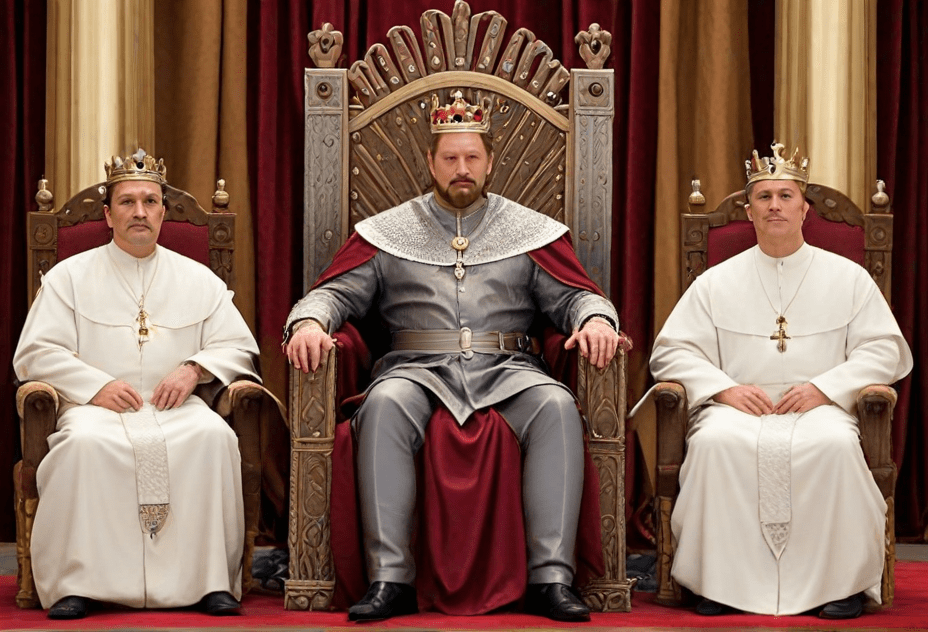IN THIS ARTICLE
- What Is Digital Project Management?
- The Digital Project Manager Job Description
- DPM – the digital project manager
- Tools Vs. Qualities
- DPM vs Digital Marketing
- What is a good project manager
What Is Digital Project Management?
Project Management + Digital (Digitalization) = Digital Project Management
The fast-paced world of digital + project management = the leading, planning, organizing, motivating, and delivery of web-enabled projects using the internet and delivered through screens or connected devices, and often within digital agencies, studios, or internal web teams.
So as digital project management.
A role or a skill?
The growing collaborative nature of many organizations is the driving force behind this question. The temptation, of course, is to save money and put a team member with great communication skills in charge as project manager.
We have to acknowledge our own bias here, but time and time again, we come back to the same definitive answer: Digital project management is a key role that bridges all the stakeholders on a particular project and achieves optimal results that could not have otherwise been achieved.
We occupy that unique spot right in the middle of the spider web, constantly scanning in all directions, feeling and responding to vibrations from all the different strings. As the critical information hub, we then interpret those signals and translate what they mean to the overall outcome, the other sections of the web, and to the client themselves.
And we’re always on the lookout for problems that could rip a hole in the web and hold the project up.
In essence, the whole is greater than the sum of its parts; without doubt, digital project management is unquestionably a critical role.
It also comes with a particular skill set.
So let’s explore what our role as digital project manager really is (and does) so we can truly own what we do—and the results we get for our clients.
What Is The Digital Project Manager Job Description?
The Digital Project Manager co-founder Galen Low said it best one day in a casual phone conversation: He said, in simplest terms, DPMs gather, curate, translate, and communicate to deliver a project on time, and on budget.
DPMs specialize in getting things done, and by that we mean making sure everyone on the team has the resources, time, and skills they need to do their job.
If that still sounds a bit vague, let’s get more specific. We asked Mackenzie Dysart, a PMP- and CSM-certified Product Manager at Connected, to tell us what a typical project lifecycle looks like for her:
- Scope and Expectations: Understanding the scope of the project and digital products involved, and what was sold (which might actually be different!)
- Internal and External Kick-Offs: Establishing the client’s preferred project management software system and communicating your project management methodologies, meeting your project team, setting the project schedule, and determining key metrics for project success.
- Daily Stand-Ups: Checking in with your team and leadership daily to make sure everyone is on track, assessing resource management and time management, and communicating those updates between teams and leadership.
- Budget Reports and Scheduling Logistics: Tracking and communicating budget updates and planning for scheduled holidays and breaks, and dealing with unforeseen issues as they relate to the overall budget, timeline, and scope.
- Getting Client Sign-Off and Going Live: Obtaining final approval and getting the Minimum Viable Product to market for assessment
- Addressing Concerns and Optimizing For Best Performance And Results: Assessing performance and leading improvements to the product in real-time.
When you look at this exhaustive list, it makes you wonder: Why would anyone launch any kind of digital product without a digital product manager at the forefront?
This also makes me wonder about the results of a football game without goal keepers, referees, nor trainers and with money on the line…
DPM for Digital Project Manager / Management
Humans love to complicate simple things, and the DPM job title is a perfect example. A digital project manager might be called something different depending on what industry you’re working in, or the agency you’re working for.
Sometimes you’ll be hired as a ‘product manager’. Or a ‘technical project manager’. Mackenzie Dysart says sometimes a DPM will also take on a strategist role, although that’s not a defining feature of the role in most cases.
What is a defining feature? Logistical gymnastics. We’re talking functional logistics (project scope, timelines, pricing, who’s doing what and when, etc) and, perhaps more importantly, emotional logistics.
“The ‘command-and-control’ style is becoming less effective in our working world and that’s allowing ‘newer skool’ leaders and ‘newer skool’ project managers to be more empathetic and people-oriented,” says Galen Low.
“People are not machines — they have a lot of stuff on the go and we’re not just drones. It’s a really delicate balance of humanity.”
That observation echoes a recent Future of Jobs report by the World Economic Forum, which identified a rising global demand for emotional intelligence and other social skills.
Soft skills like conflict resolution, negotiation, mentoring, training, decision-making, and team-building are fast becoming highly valuable qualities in job candidates in general, which means great project managers are poised to become even greater key players in the digital space, bringing even more value to the table.
Digital Project Management Tools Vs. Qualities
Flexibility is the most valuable tool in your project management tool box. Okay, maybe flexibility is less of a tool and more of a quality, but it’s the best darn quality a DPM can have.
Because the actual tools you use aren’t always up to you. Your job is to hop aboard whatever workflow processes your client works in to create a project plan and drive the deliverables.
Anyone can follow SCRUM, waterfall or agile project management systems but what sets a successful digital project apart from a catastrophic one is having a DPM who is constantly evolving their project management skills.
Why? Because in the digital space, speed matters and not just because time is money.
Traditional project management has all this time and space to address fixes. The digital space is a lot faster. You need to be nimble. It’s a lot of questions, answers, and decisions being made in a tight space in a matter of hours.
“Traditional project management has all this time and space to address fixes. The digital space is a lot faster. You need to be nimble,” says Mackenzie Dysart. “It’s a lot of questions, answers, and decisions being made in a tight space in a matter of hours,” not days or months. But this iterative nature of digital projects is exciting, for both the client and the user.
We iterate because we can—it’s software and it’s easy to change—but also because users are demanding it, notes Galen Low. Users are not only now accustomed to incremental improvement, but in having a direct say in what those improvements are.
It’s this feedback loop that makes digital project management such an exciting space; “the product will improve as it sits in my hands,” he says.
Digital Project Management and Digital Marketing
Is digital project management the same as Digital Marketing? Far from it. The last starts when the first is finished.
You launched a digital product, you’ve set up the entire technology base for your client, made a nice web design or fully coded with custom CSS and HTML and an enhanced user experience, on budget and on time. The web project or app product is ready to drive traffic and content with digital engagement models are already built in.
Then follows the next stage, the Digital Marketing.
This falls perfectly under the digital projects umbrella, as as you are now directing the execution of compelling social media and marketing campaigns for your client.
Digital Projects
DPM
Project scope, web design, development, html, css, javascript and so on.
Digital Marketing
Social Media and Marketing Campaigns.
A website or homepage is like a store on an island. It is as a supermarket displays their products or guides you through a specific parkour in their shop. Digital Marketing is so as the customer finds you and google the boat which brings the customers to your island.
A report by the International Project Management Association highlighted that in 2019, as the pandemic was just ramping up, only 30 percent of organizations felt their ability to manage organizational change was actually effective. This means that today, more organizations are suddenly turning to project managers to drive change initiatives, which most often means digital transformations.
What is a good Project Manager?
A project manager is like a goal keeper who keeps his team safe and manages the play. When you win, the praise goes to the attacker. When you loose, it is all your fault.
So what is a good project manager is kind of hard to answer, as they are there steering the project, holding all the responsibility and extinguishing all the fires. So the best would be, when he manages to keep all going fine and if not to manage to solve these fast.
The irony is, a good PM is rarely noticed. When they’re really supporting the team, the team barely notices they exist; all that crucial gathering, curating, translating, and communicating is working quietly in the background to prevent fires from hitting the ignition point.
No one notices a fire that never exists. But perhaps, along with the iterative tide of the digital marketplace, clients are starting to recognize the true value of prevention.






